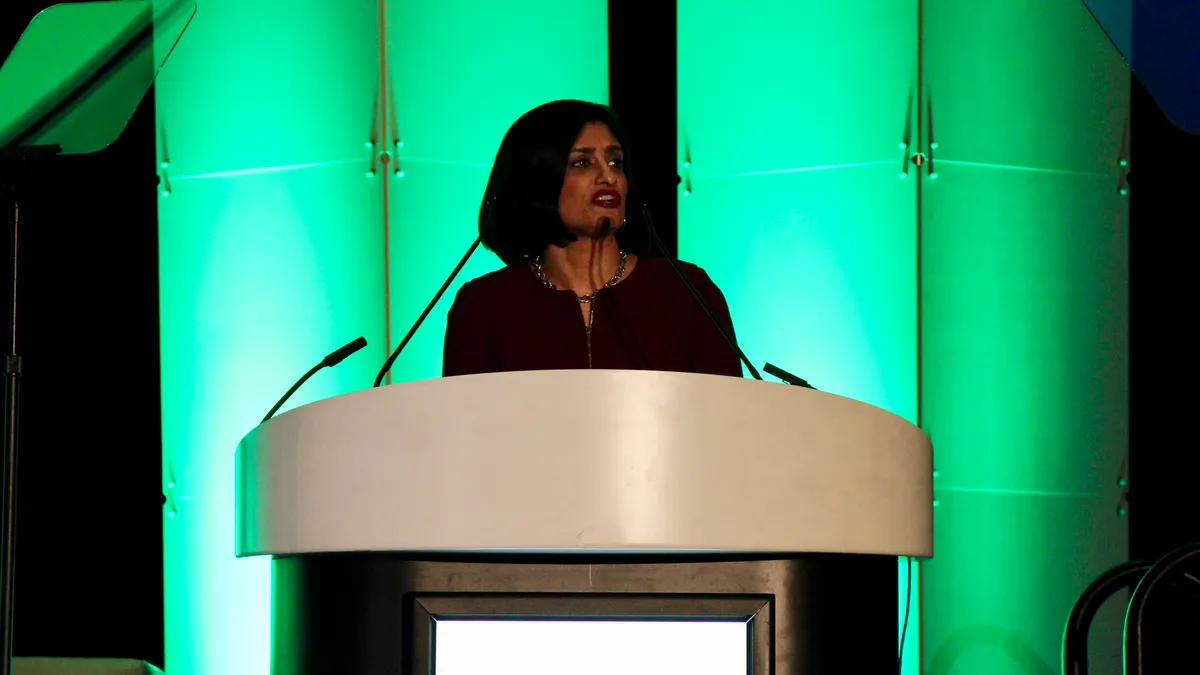Dive Brief:
-
CMS Administrator Seema Verma took to the Alliance for Connected Care Telehealth Policy Forum for Health Systems Thursday to outline recent CMS actions aimed at ensuring Medicare facilitates access to new healthcare technologies.
-
Addressing an audience of telehealth professionals, Verma outlined plans to prevent Medicare from acting as a barrier to healthcare technologies more broadly. The CMS head sketched out a vision for a digital health network where widespread wearable technologies, paired with the free flow of information between patients and providers and other advances, improve care.
-
The agency Thursday also submitted a report to Congress on Medicare telehealth, which outlined how beneficiaries are currently using telehealth services, and how lifting current restrictions to telehealth could enhance functionality.
Dive Insight:
After 20 months in the job, Verma touted changes to Medicare and impacts on the medtech industry in her speech and an accompanying blog post. In its report to Congress, CMS noted that telehealth is currently used to primarily treat Medicare patients with mental health diagnoses, but broader uptake remains slow.
"While CMS has used waiver authority to include broader uses of telehealth in testing certain 1115A models, overall telehealth utilization among Medicare FFS beneficiaries has increased slowly," the report states. "While statutory barriers to the expansion of telehealth for Medicare FFS continue to exist, research has found that the technological capacity to provide telehealth has advanced considerably, as has patient and provider acceptance of telecommunications technology as a method of care delivery."
CMS is working to expand access to telehealth and the medical technologies that facilitate the remote provision of healthcare. One example: the release of a home health rule intended to enable patients to share data collected by devices with their providers in real time.
The administrator also railed against some perceived constraints of the Medicare program, citing the example of diabetes applications to show the difficulty of fitting novel technologies into existing payment schemes.
"We clarified policy to ensure that Medicare beneficiaries with diabetes can use apps on their phones to get readings and data from continuous glucose monitors. But again, this was not easy. It took years. Meanwhile, patients went without new technology that could improve their health," Verma said at the event.
Looking forward, Verma identified interoperability as an area of focus for CMS, pledging a committment "to removing any and all bureaucratic and legal obstacles to machine, device, and EHR system interoperability." She pointed to the manual effort involved in entering electrocardiogram results into EHRs as evidence of the shortcomings of current systems.
The focus reflects a belief that connecting medical devices and other technologies to allow smoother data flow through the healthcare system will encourage innovation and lead to better patient care.
David Lim contributed to this story.










